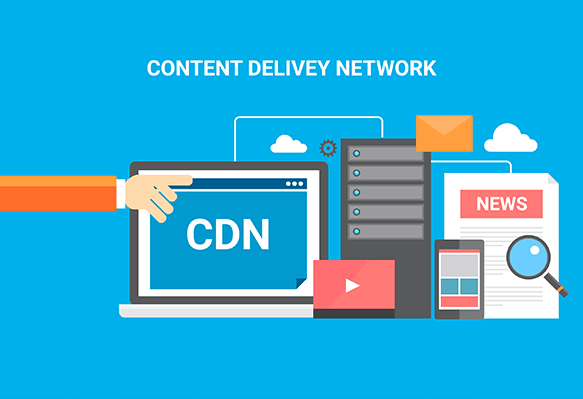What does CDN stand for? And other CDN-related questions
- September 20, 2019
- by Admin
For this article, we’re answering the questions, “what does CDN stand for?”, “What is CDN?”, “How does a CDN work?”, and “why do I need a CDN?”
One thing that’s taking over the tech world now is CDNs. A CDN or Content Delivery Network is a well-apportioned series of servers that help improve web page loading time by decreasing the actual distance between the user and the server. This allows site visitors and internet users to enjoy the same premium consumable media available online minus the slow loading period.

When a company doesn’t make use of a CDN, origin servers take the sole responsibility of responding to the request of every one single end-user. When this happens, tremendous traffic is bound to overwhelm these origin servers and this increases the likelihood of server failure.
When a CDN responds to user demands on behalf of origin servers, they take a great deal of traffic from these servers and enhance overall web and digital experience.
A CDN’s thorough geographic placement helps in accurately apportioning data and media to servers near a group of end-users, too; so it really doesn’t matter where you are. When you click on a website photo or stream a movie online, you’re likely to enjoy the same kind of media quality with the help of a CDN.
How do CDNs work?
Perhaps half—if not more—of internet traffic is managed by a CDN. Business leaders need to understand that a CDN’s main target is to improve latency; that is, to eliminate the unnecessary delay between the web page loading in full and the request for it to do so. This is achieved by compromising the actual distance it takes for the request to travel.
For instance, an Asian end-user needing to access content that comes from a US-based server may encounter slow loading times if the actual request still has to travel several seas. To get rid of this, CDNs keep a cached model of your site content in several topographical key areas all over the globe. This is referred to as PoPs or points of presence. These PoPs store distinct caching servers that take care of delivering and presenting content in an end user’s area, wherever it may be.
Devices that run web browsers, aka user-agents, initiate the requests on behalf of the needed content to load web pages like JavaScript files, images, CSS, and HMTL. How this works is simple: content requests will cause the end-user to be linked to a server that’s geographically suited to him or her. The server then responses with the pre-saved version of the requested media.
If for whatever reason, it’s unable to detect the media, it resorts to finding the content on neighboring servers within the CDN infrastructure, before sending the appropriate response to the site visitor.
But if you think the only role of a CDN is to deliver website content to end-users all around the globe, you’re wrong. As a matter of fact, CDNs also render other kinds of content such as application and software downloads, audio streaming, HD quality videos, data records, and even OS updates. The list can go on, truth be told. Potentially, digitized data in any form can be transmitted by and through a CDN.
What do Content Delivery Network Providers do?
In its simplest words, a CDN provider is one that delivers businesses the capacity to broadcast their content to internet visitors via a content delivery network, wherever their users may be around the world. Beluga CDN is a terrific example of a CDN provider.
Is using a CDN necessary?
CDNs present a simplified method to boost website speed while also reducing latency. Thus, they are crucial for efficient, secure, and speedy content delivery to internet users all around the globe. As mentioned earlier, a CDN’s function isn’t limited to delivering content from sites alone. It also has the ability to render downloads, media streams, and software updates.
With digital attention spans becoming shorter as each day progresses, it’s necessary to deliver content as swiftly, completely, and efficiently, as possible.
As almost every business is trying to also make their mark in the digital space, the rest of society is wrapping their lifestyles and decisions around what the web has to present. This both makes it challenging for entrepreneurs to stay relevant, but it also makes it easier for them to reach their market.
CDNs are designed to provide tailor-fit support that helps these businesses reach and capture their audiences in a personalized manner. From delivering region-exclusive content to personalizing content format by making sure they complement a device, CDNs are a sure investment that’s bound to fortify your digital efforts.
Interested in getting a CDN for your company? Check out our plans and get our free trial today!
Have feedback? Let @belugaCDN know on Twitter



